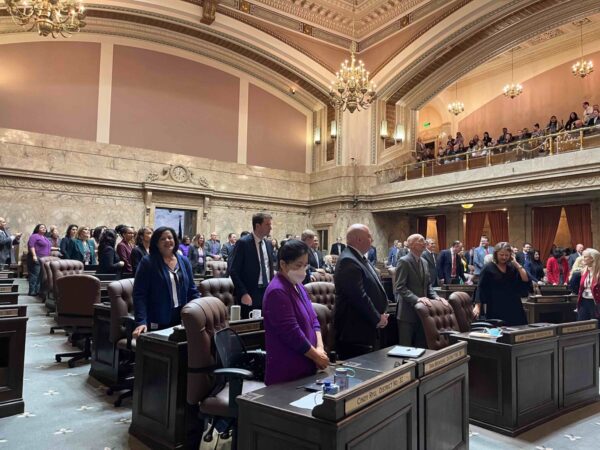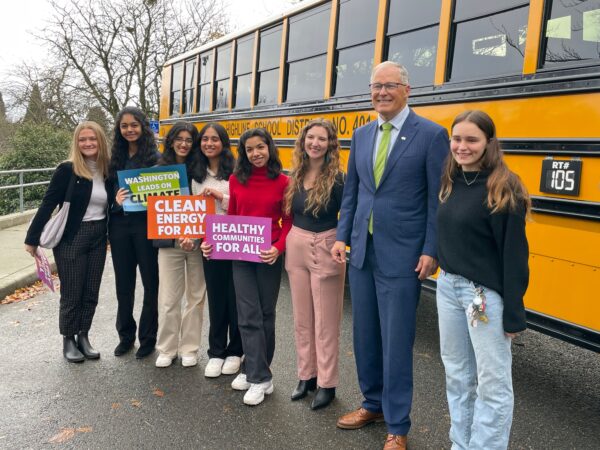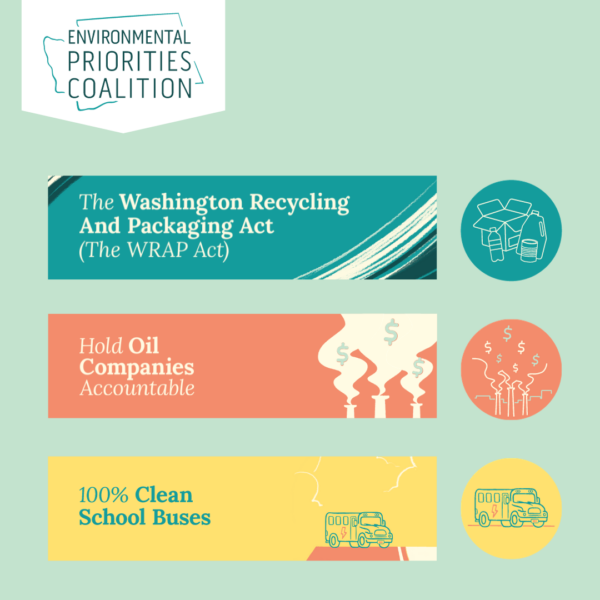In 2006, Washington was one of the first states in the nation to pass a law putting the responsibility on the producer, not the taxpayers, for recycling of computers and TVs. This means the companies that produce electronics will also pay for and manage their recycling. It is hoped that this will, in turn, provide additional incentives for manufacturers to reduce the use of toxic materials, since they will have to pay for their disposal.
“Disposal of consumer electronics is a growing problem, in Washington and throughout the country,” said Mo McBroom, policy director at Washington Environmental Council, one of the groups that helped push for passage of the 2006 legislation. “With this new program, it will be easier than ever for consumers to keep toxic materials out of landfills.”
Millions of pounds of unwanted electronic products currently end up in Washington State landfills each year. But E-Cycle Washington is working to change that by providing a comprehensive and convenient network of free collection sites.
Individuals should be able to find drop off locations close to home. Learn more about E-Cycle Washington.
While the statewide program does not begin until January 1, there are networks and resources available now that accept unwanted electronics for a fee and agree to recycle them responsibly.
“We expect to collect and process over 20 million pounds of electronic waste in the first year of operations,” said John Friedrick, Executive Director of the Washington Materials Management & Financing Authority. “E-cycling will be available at over 200 individual collection sites, in every county in the state and in every city or town with a population greater than 10,000—making electronics recycling easier and more convenient than ever.”
“We broke the ice for producer responsibility around the country,” added Suellen Mele, Program Director for Washington Citizens for Resource Conservation. Since passage of Washington’s landmark law in 2006, over a dozen other states have passed laws requiring manufacturers to pay to recycle obsolete electronics.
According to recycling experts, roughly 400 million units of used electronics are disposed of in America each year. Proper recycling separates the rest into glass, plastics, and metals for further processing and materials recovery.
According to the EPA’s 2007 figures, nearly 82 percent of the 2.25 million tons of e-waste generated in this country ends up in landfills or incinerators, where dangerous toxins can leach into groundwater or get released into the air. The portion collected for recycling is largely exported to developing countries, which often lack adequate protections for workers or the environment. There, products are handled under primitive conditions (in backyard recycling yards) or simply dumped and eventually burned, exposing workers and communities to deadly toxic chemicals, like dioxin or furans.
For the new E-Cycle Washington program, the manufacturers have voluntarily committed to using recyclers who meet preferred standards developed by the Department of Ecology. This is a big step forward in increasing environmental and health protections.
In 2006, Washington Environmental Council teamed up with Washington Citizens for Resource Conservation, Hewlett-Packard, Washington Retail Association, non-profits and others to promote a shared responsibility model for electronics recycling where manufacturers will establish and pay for the collection, transportation and processing system throughout the state. This system will provide a convenient, safe and more environmentally sound recycling option for unwanted computers and televisions.
More Resources
http://www.takeitbacknetwork.org
http://www.wastenotwashington.org/



